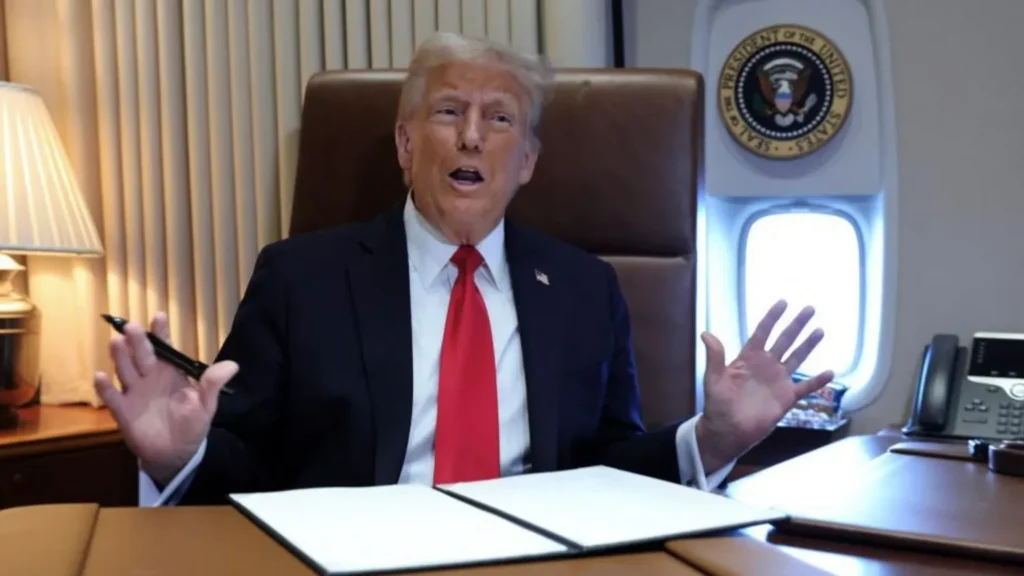WASHINGTON — President Donald Trump expressed uncertainty over whether individuals in the United States—regardless of immigration status—are constitutionally entitled to due process, sparking renewed debate over the legal rights of non-citizens amid heightened immigration enforcement.

During an interview recorded Friday for NBC’s “Meet the Press with Kristen Welker,” Trump was asked whether he agreed with Secretary of State Marco Rubio’s recent statement that “of course” everyone in the U.S. is entitled to due process. Trump responded, “I don’t know. I’m not, I’m not a lawyer. I don’t know,” adding that upholding such rights could potentially involve “a million or 2 million or 3 million trials,” referencing the scale of the undocumented population and the burden on the legal system.
Although Trump emphasized that his administration would follow Supreme Court rulings, his ambiguous remarks underscored his administration’s aggressive stance on immigration and raised questions about how legal safeguards are being applied to deportation proceedings. “My lawyers are going to obviously follow what the Supreme Court said,” he added.
Trump’s comments come as the Supreme Court temporarily blocked his administration from deporting a group of Venezuelan migrants whom federal authorities allege are gang members. His legal team has argued that those targeted for removal were given advance notice and sufficient time to seek judicial review.
In another case involving mistaken deportation, the Supreme Court ordered the administration to help facilitate the return of Kilmar Abrego Garcia, a Salvadoran man wrongly removed from the U.S. despite a pending court case. Garcia remains detained in El Salvador, and a federal judge has demanded a full account of efforts made to bring him back.
The debate over due process for immigrants and non-citizens is particularly relevant as Trump continues to invoke a wartime-era statute to fast-track deportations, sparking legal and political scrutiny.
In the same interview, Trump addressed speculation about seeking a third term in office, saying, “It’s not something I’m looking to do,” while acknowledging the constitutional limitation. “To the best of my knowledge, you’re not allowed to do that,” he said, referencing the 22nd Amendment, which limits presidents to two elected terms.
Trump’s statements have fueled concern among legal experts and civil rights advocates who warn that eroding due process protections could set a dangerous precedent. The remarks reflect a broader effort by the administration to redefine the scope of constitutional protections in the context of immigration enforcement and national security.


